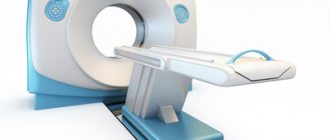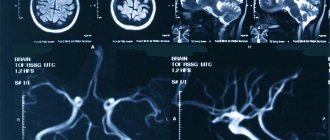It is difficult to get rid of alcoholism on your own, especially if the disease has reached the second or third stage. Even if the patient wants to recover, he needs the help of specialists. Most often, when choosing a treatment method, patients choose hypnotherapy. This technique is based on immersing the patient in a trance state and instilling in him the necessary attitude. This technique is widely used not only in narcology, but also in psychiatry, as well as in psychotherapy. Compared to other methods, hypnosis coding is quite effective.
Specifics and results
Traditional healers and all kinds of representatives of alternative medicine present hypnosis as something mysterious and supernatural. In fact, it is putting a person into a trance to access his consciousness.
Getting there without hypnotherapy is not so easy. Under hypnosis, a specialist is able to change any program of a person’s subconscious: change positive reactions to negative ones, and vice versa.
Based on hypnotherapy, methods have been created to get rid of addiction to alcohol:
- Classic hypnosis : a specialist puts the patient into a trance, then inspires him that alcohol is a harmful, unpleasant, disgusting thing, its smell and taste are disgusting. A small effect is visible after the patient is given a cotton swab with alcohol to sniff after the session: most often a negative reaction occurs.
- Erickson's method : in a state of hypnosis, the patient hears words and orders that he has given up alcohol. He is no longer interested in alcohol in any form. An alcoholic develops positive motivation for success.
- Neurolinguistic programming (NLP) is a method without suggestion. The patient is simply told what sober life is and how it differs from his existence. The feeling of happiness, pleasure, joy is returned to him. Psychological assistance requires long-term use.
- The hypnosuggestive method is suggestion using metaphors. The hypnologist uses allegorical images to block the desire to drink. Subsequently, the person himself cannot remove them and has no idea what they are based on.
- “Anchor” is a technique of associations. Any patient has his own negative and positive moments in life. Each event is an “anchor”. It is used as a specific marker for associations with alcohol. The “anchors” are chosen by the patient himself.
- The Dovzhenko method is a suggestion therapy lasting 2-3 hours, when a specialist talks about the uselessness of alcohol in a person’s life, its uselessness, and ends with information about the consequences of alcoholism - heart attack and stroke. The patient is conscious all the time and perceives information. The duration of coding using this Gmethod is up to 5 years.
Interesting! One of the unusual methods of hypnotherapy belongs to Vladimir Raikin, a Soviet psychotherapist. During the hypnotic session, he suggested to the patient that he was not the patient himself, but his relative - a child, mother, wife. Then he offered to tell about himself from this person’s side. The results of this treatment were high.
There are 3 principles of hypnosis, without which hypnotherapy will be useless and even harmful: voluntariness, abstinence from alcohol and regularity. No serious specialist will conduct sessions without the consent of the patient, and if he has not cleansed himself from alcohol.
It is possible to achieve results in treating addiction to alcohol using this method. But this will take time and united work between the hypnologist and the patient.
Neurolinguistic programming
The human psyche is a complex multi-layered system. The subconscious contains basic knowledge about all aspects of human life and society, and the conscious mind actively uses this information, adjusting it to current needs.
Often, transformations of basic principles become so radical that they harm the health and life of an individual, requiring the intervention of a specialist.
NLP hypnosis gives an orientation towards sobriety, pulling out from the depths of the subconscious the correct attitudes that do not have a destructive effect on their bearer. But the work on neurolinguistic programming takes more than one week and requires a long period of voluntary abstinence from alcohol, a person who is not yet able to provide such resistance to his addiction.
Video: coding using the method of Alexander Dovzhenko
Many people are scared by the very concept of “hypnosis,” while others may simply not trust this technique. But everyone has the opportunity to first become familiar with this treatment option. You can learn more about Alexander Dovzhenko’s method from the video:
It talks in detail about the advantages, disadvantages of coding, as well as hypnosis for mental disorders. The patient is hypnotized for a certain period of time. To prepare for the session, the doctor conducts an examination and assesses the psychological state of the patient.
History of use in medicine
The word hypnosis comes from the Greek word hypnos, which means sleep. The flourishing interest in the technique is associated with the activities of the German physician Franz Mesmer, who lived at the turn of the 18th-19th centuries. It was he who began to spread the idea of the existence of animal magnetism, a kind of force that magnetizes and can have a therapeutic effect on patients.
The “Golden Age” in history is 1880-1890. At that time, a conflict arose between the Paris School and the Nancy School over the nature of the influence. The outstanding neurologist Jean Charcot, representing the Parisian school, considered hypnosis to be a somatic phenomenon of a pathological nature associated with hysteria. On the other hand, representatives of the Nancy school emphasized psychological determinants, especially suggestion. Around those years, the first attempts to use hypnosis for alcohol addiction began.
In 1953, the first scientific journal devoted to hypnotic suggestion was published, the International Journal of Clinical and Experimental Hypnosis.
Advantages and disadvantages
The positive aspects include the possibility of treatment without any drugs that affect health, relatively low cost, and the ability to be cured without side effects.
Negative aspects include the problem of choosing a real psychotherapist who knows the techniques of hypnosis and treatment of the disease. It is also necessary for the patient to take the first step towards a sober life and contact a doctor. And not everyone can do this.
Despite the fact that hypnosis is not associated with taking any substances, it has contraindications:
A frank letter from a reader! Pulled the family out of the hole! I was on the edge. My husband started drinking almost immediately after our wedding. First, a little at a time, go to a bar after work, go to the garage with a neighbor. I came to my senses when he began to return every day very drunk, he was rude, and drank away his salary. It really got scary when I pushed him for the first time. Me, then my daughter. The next morning he apologized. And so on in a circle: lack of money, debts, swearing, tears and... beatings. And in the morning we apologize. We tried everything, we even coded it. Not to mention conspiracies (we have a grandmother who seemed to pull everyone out, but not my husband). After coding I didn’t drink for six months, everything seemed to get better, we began to live like a normal family. And one day - again, he was late at work (as he said) and dragged himself in the evening on his eyebrows. I still remember my tears that evening. I realized that there was no hope. And after about two or two and a half months, I came across an alcoholic on the Internet. At that moment, I had completely given up, my daughter left us altogether and began to live with a friend. I read about the drug, reviews and descriptions. And, not really hoping, I bought it - there was nothing to lose at all. And what do you think?!! I started adding drops to my husband’s tea in the morning, but he didn’t notice. Three days later I came home on time. Sober!!! A week later I began to look more decent and my health improved. Well, then I admitted to him that I was slipping the drops. When I was sober, I reacted adequately. As a result, I took a course of alcohol-toxic medication, and for six months now I’ve had no problem with alcohol, I got a promotion at work, and my daughter returned home. I'm afraid to jinx it, but life has become new! Every evening I mentally thank the day when I learned about this miracle remedy! I recommend to everyone! Will save families and even lives! Read about the cure for alcoholism here.
- pregnancy and breastfeeding;
- depression and hysteria;
- cardiovascular diseases;
- mental disorders;
- epilepsy;
- recent surgery or heart attack.
Preparation for the procedure
The most important conditions for any coding are the desire of the patient himself and compliance with 3-7 days of sobriety before the procedure. In the case of hypnotic treatment, the period of sobriety should be 8-10 days.
If your loved one refuses to accept medical help, the best solution is to call an interventionist who will help motivate the patient by directing his thoughts in the right direction. Thanks to our specialists, who have extensive experience behind them, we manage to persuade 9 out of 10 people suffering from addiction to strong drinks to undergo treatment.
Treatment process
Before starting a session, the hypnologist must debunk the myths that exist about hypnosis. For example, there is information that supposedly under its influence you can force a person to do something against his will. In fact, this is impossible, and the patient should know this.
It is important to create a trusting relationship between the patient and the doctor. After which, in a comfortable environment and clothing, the patient is positioned as he likes. The doctor puts him into a trance using his technique.
In a state of hypnosis, the psychotherapist, according to the chosen method, induces an aversion to alcohol, and immediately talks about life without alcohol, about the pleasures that pass by an alcoholic while intoxicated. After this, the doctor takes the person out of hypnosis.
Sessions cannot be carried out at home, since there is no special equipment for treatment.
Treatment with hypnosis can have its consequences:
- There are cases when the hypnologist lost contact with the patient during a session, and he remained in a trance for more than a day.
- After a session, many alcoholics experience headaches and dizziness.
- People with an unstable psyche can fall into a depressive state or a state of hypnotic stupor.
Possible contraindications
Even treatment methods such as hypnosis have a number of contraindications. Before starting the course, a good specialist not only communicates with the patient, but also studies his medical history. If necessary, he may even refer his patient for preliminary laboratory tests. Contraindications for hypnosis sessions include:
- Diseases accompanied by general intoxication and weakening of the body
- Presence of mental illness
- Severe psycho-emotional degradation of the patient caused by excessive alcohol consumption
- Traumatic brain injuries
- The patient is in a state of withdrawal (withdrawal syndrome) or alcoholic delirium (blurred consciousness)
Reviews and consequences
There are both negative and positive reviews about hypnotherapy. Some people don’t believe in hypnosis for alcoholism, others have met unsuitable specialists. Positive characteristics indicate that the hypnosis method is quite effective.
Anastasia: “When I met my husband, he was a great person. Then his mother died, and he was very attached to her. I started drinking very heavily. What have I not suffered? Yes, it’s my own fault, I didn’t dissuade him, I didn’t convince him. I had no time for this - two children, household chores. Recently, after another binge, I suggested that he undergo hypnosis treatment. I took one course and now I don’t drink.”
Dmitry: “If you don’t have your own desire to stop drinking, nothing will help. I stitched myself up and took pills - to no avail. And then one day the snow melted, and I saw a drunkard lying in the mud. And it dawned on me: a little more, and I will be lying in his place. Then I decided to go into code and asked a narcologist to help me. The doctor recommended a hypnosis session. I don’t regret it, I just need to go to proven and experienced specialists, otherwise there will be more problems later.”
Oksana: “When a wife or husband drinks, they leave them, but when your father is an alcoholic, you cannot leave your own blood. My father drank for a long time and did whatever he wanted: he broke windows and my mother. I went to a hypnologist, who told him something like that for the second month we have been living calmly. And then we’ll see.”
There are patients for whom hypnosis did not help or had negative effects.
Alena: “Hypnosis helps some, but it is contraindicated for others. My father drank often, and my mother tried to treat him in many different ways. It didn't help. We turned to hypnosis: now the father is unrecognizable. He stopped drinking for a while, then started again. But in a state without alcohol, he resembles either a zombie or an enraged person.”
Andrey: “Without drug therapy, hypnosis against alcohol is nothing. I tried it, already during the first session the hypnologist began to piss me off. I did not continue this treatment. But this therapy helped a friend very well. Either I’m not susceptible to hypnosis, or I got a bad specialist.”
Important conditions for hypnosis
To achieve good results and recovery, a patient dependent on alcohol must follow some recommendations. Only by following all the rules and conditions of the coding will the patient be able to finally and irrevocably stop drinking alcohol.
So, the main conditions for a successful hypnosis session are:
- The patient must voluntarily participate in therapy;
- The course of hypnosis must be carried out to its logical conclusion . Unauthorized interruption of sessions will most likely lead to negative manifestations and reduce the effectiveness of treatment as a whole;
- On the eve of hypnotic influence, it is prohibited to drink alcohol in any form. The body must be completely cleansed of ethanol metabolic breakdown products, which will allow for more successful therapy.
If desired, such therapy is carried out anonymously , which will allow the patient to maintain his social status.
Attention! To cleanse the body of poisons and toxins from the breakdown of ethyl alcohol, you will need to take medications. Medicines section of our website contains reviews of almost all drugs available on the market today. In the same reviews you will find user reviews with stories and the opportunity to get advice from sellers.
Since alcoholism is treated with hypnosis in a clinic , the price of coding at the psychotherapy and smoking center may vary depending on the chosen method and the complexity of each individual case of alcohol addiction.
We recommend
Rehabilitation of alcoholism - stages, methods, techniques
Read more
Tips and tricks
In order for hypnosis to be effective and with the least consequences, it is worth listening to some advice, both for people with an addiction to alcohol and their relatives:
- Hypnosis is not just about going into a trance, but about working with the subconscious. A professional hypnologist can radically change your attitude towards alcohol.
- Choosing a real specialist is a responsible matter and requires a lot of effort. Do not trust advertising that says you can get rid of a disease in one session. These are charlatans. And turning to them will lead to deterioration of health and loss of money.
- If you decide to seek help in treatment from a hypnosis specialist, trust him and get ready for fruitful work.
- Hypnosis has the property of a course work, that is, the problem will not be solved in one day. Be patient and tune in to the result.
Signs of alcoholism
Before you begin treatment for alcohol addiction with hypnosis or other methods, you should study the symptoms and signs that are characteristic of it. These include:
- lack of desire to work;
- unsystematic drinking periods;
- drinking alcohol in large quantities without withdrawal;
- the occurrence of a hangover;
- external manifestations (skin aging, darkening of the skin, enlarged veins and bruising, etc.).
The lack of financial stability in the life of an alcoholic is a consequence of addiction; he no longer wants to work, believing that he is unable to change anything in his destiny; everyone around him is to blame for his troubles.
Periodically there comes a period of drinking. It can last more than a day. In beginning alcoholics, alcohol consumption increases without external rejection, i.e., there is no vomiting or feeling of extremes. After a binge, a persistent hangover occurs (withdrawal syndrome), which is relieved by the alcoholic with another dose of alcohol.
Addiction takes its toll on a person's appearance. He has a swollen, dark-colored face and skin, swollen and pronounced veins, cloudy eyeballs, and a wandering gaze.
Those who have fallen completely lose their sense of self-esteem; a person slides to the level of animal instincts. He does not come out of his state and constantly maintains a certain dose of alcohol in his body.
Speech is incoherent and incomprehensible to others. Gradually, internal organs are damaged and death occurs. If you turn to a specialist in time, hypnosis will relieve alcoholism and become a salvation for the patient and his environment.










